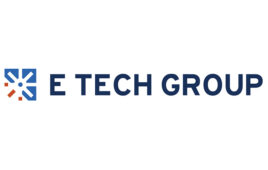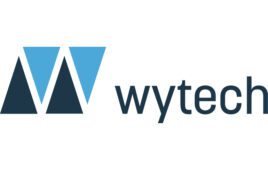
DeviceTalks program manager Sarah Faulkner (left) interviewed Boston Scientific corporate research VP David Knapp (right) at DeviceTalks Minnesota in September. [Image by WTWH Media videographer manager Brad Voyten]
In his 20 years at Boston Scientific, David Knapp has learned a lot about how to develop a medical device. His approach to identifying an unmet clinical need that could be tackled by a new technological therapy is well-defined: it all starts with empathy.
“There are people who have a pair of eyes that I don’t have, that see things that I don’t see. And those are the kinds of people we try and put in these kinds of roles where they’re observing procedures. Ethnography is a huge part of this, but it can’t be the only thing. Really [we need] a deep understanding of physiology, disease state,” he said in an interview at DeviceTalks Minnesota 2019.
“The other thing I’ll say is that it’s incredibly important to me to prioritize needs based on multiple criteria. The three questions I think about are ‘will it work?’, ‘can you prove it?’ and ‘is there a business case around this to add value to the healthcare system?’ And if you can bring those three questions together and put a team around those, then you’ve got something.”
The shift to value-based healthcare
For years, analysts and major players in the healthcare industry have spoken about the impending shift to value-based healthcare. And most would agree that the industry has a long way to go as it moves away from a fee-for-service model. To effectively transition to value-based healthcare, Knapp acknowledged that it will require cooperation between all of the various players: payers, industry, providers and regulators.
“The reality is that everything we do involves all of those stakeholders. It is absolutely the case that going forward we’re going to need to engage them in this story,” he said. “But the good news is that we’ve been doing this for a long time.”
He pointed out that after Boston Scientific acquired Guidant in 2006, the company went from having predominantly traditional mechanical devices to also selling active implantable devices.
“Because those active implantables have sensors in them, we were now in a world where we had data over time being collected from the patients that were using those devices,” Knapp explained. “What we realized was that this was an opportunity for us to really dig deep, analyze the data and understand how we might be able to address the disease of these patients better.”
Boston Scientific crafted an algorithm that interprets data from multiple sensors embedded within its defibrillators. That AI produces an index for each patient, which is then sent to a physician and (based on the doctor’s preferences) the doctor can receive an alert when things change beyond a certain threshold, according to Knapp.
“Oftentimes that happens before a patient is feeling sick. That’s really important, because if they’re waiting until they’re feeling sick and they go to urgent care, or they go to an emergency room or a heart failure clinic, by then it may be too late to change something. This is an opportunity for a physician to intervene earlier and make a difference,” he said.
“That is the kind of thing that is going to really add value in the future for devices. If you think about what that does and telegraph in the future where appropriate, devices are increasingly going to have those capabilities. To be able to sense, to be able to collect data, and who does that better than the companies that are creating implants that are right there where the action is?”

Knapp
Moving from acute to preventive care
As VP of corporate research at Boston Scientific, Knapp has a unique role – he works on technology platforms that cut across multiple divisions at the medtech titan. His job gives him a high-level perspective on the issues that are shaping how healthcare is delivered and how patients are cared for around the world.
One thing Knapp is thinking about a lot these days is the world’s aging population.
“At some point along the line here, the number of people over the age of 65 begins to be much greater than the number of younger people that are here. The burden for the healthcare system goes way up and costs go way up, so… patients are demanding better solutions and solutions that are more personalized and proctored for them,” he said.
In order to make the shift to value-based healthcare and address the industry’s problems of the future, medtech companies need to start thinking about engaging in preventive care, according to Knapp.
“If I think about the history of Boston Scientific, we have been playing in a space of acute treatment. Something needs attention and we have a plethora of devices that can address that. Increasingly we’re going to be needing to think about the broad continuum of care and then how do we essentially diagnose and understand that there is disease sooner, maybe even before the patient is seeing any clinical symptoms,” Knapp said. “And then once we do intervene, how do we keep them healthy and [help them to] stay out of the hospital.”
Another issue that Knapp highlighted at DeviceTalks Minnesota 2019 was the ever-growing need for technologies that are suited to the requirements of individual countries and populations.
“Disease and disease treatment is not evenly distributed in the world. There’s an underserved community and I think it’s the job of companies like Boston Scientific to address that,” he said.
Knapp pointed out that when started at Boston Scientific 20 years ago, the company was largely focused on addressing the U.S. market. But over the last decade, according to Knapp, Boston Scientific has started to increase its global footprint, with presences in places like Shanghai, Ireland, Costa Rica and India.
Minnesota: ‘an oasis of talent’
It’s no secret that Boston Scientific regularly invests in or purchases companies with interesting technology – earlier this year it closed a $465 million deal to buy spinal implant developer Vertiflex. The company also partnered with Mayo Clinic this year to open an accelerator named Motion Medical.
Boston Scientific has also worked with Medical Alley, the University of Minnesota and Mayo Clinic in the Twin Cities on a project known as the gBETA Medtech Accelerator.
“That has been eye-opening for me in terms of bringing entrepreneurs to the fore and really encouraging them to step up. These are companies that are already formed and it’s just about accelerating them. It’s seven weeks of being able to have all the resources through those organizations,” he explained. “And believe me, they take advantage of it.”
Knapp said that as far as talent and technology goes, Minnesota is “ground zero for medtech.”
“This is just an oasis of talent. It’s an oasis of ideas and creativity. Whether you’re talking about strategic companies, many of which are essentially based here one way or another, or whether you’re talking about startups, this is the place to be,” he said.
To the young startups looking to engage Boston Scientific, Knapp shared some advice.
“Just understand the stage that you’re at and what you’re looking for. And understand that we have over 32,000 employees in the company. It’s a big company. Sometimes it can take time to find the right people, but they’re there,” he said. “So be persistent, have the grit to not just expect that your very first touch point is going to be the answer. Even at a company like ours, it takes a couple of phone calls.”




